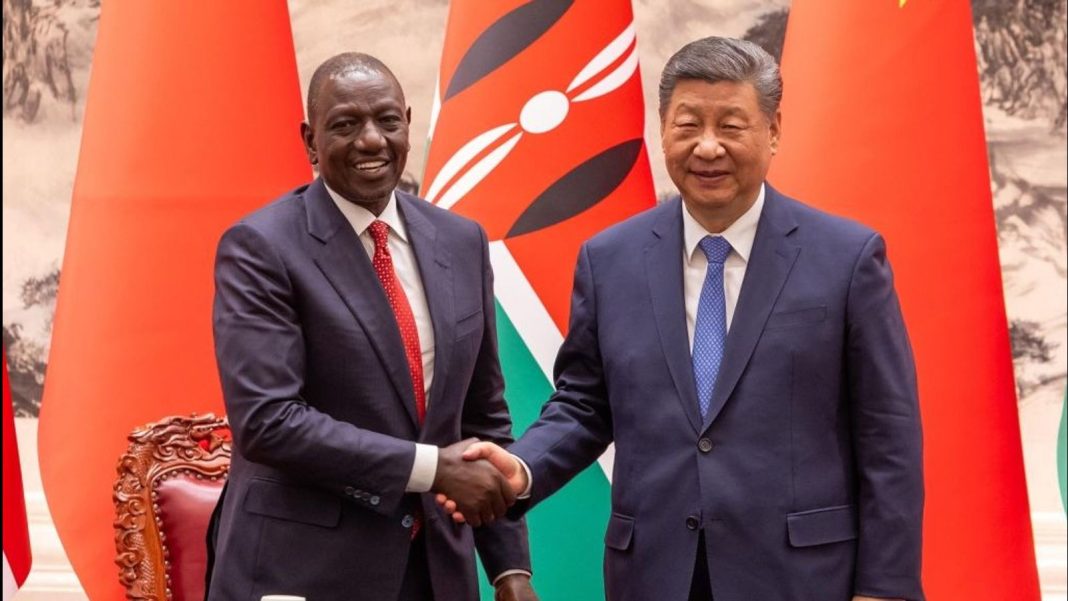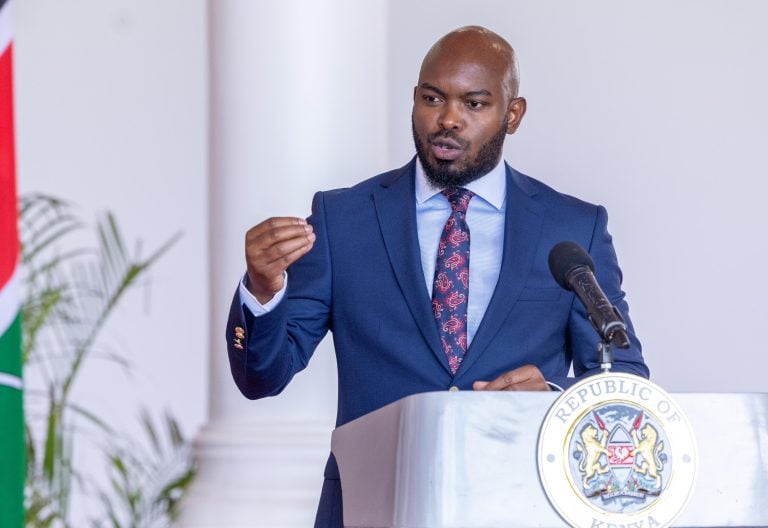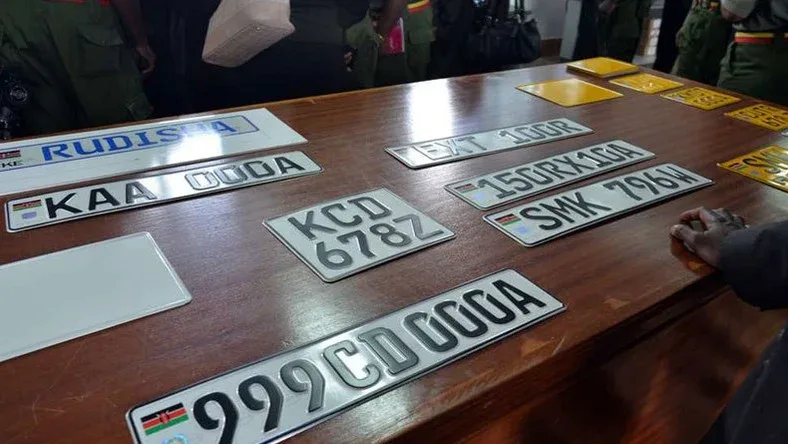Kenya’s balancing act between global superpowers has drawn sharp attention in Washington following deepening diplomatic and trade ties with China and Iran, despite being the first sub-Saharan African country to attain Major Non-NATO Ally (MNNA) status.
President William Ruto’s foreign policy is now under scrutiny after his April 2025 state visit to Beijing, where he declared Kenya and China “co-architects of a new world order.” The comment sparked backlash from US lawmakers, with Senate Foreign Relations Chair Jim Risch leading calls for a review of Kenya’s MNNA designation.
This comes just months after Ruto’s celebrated May 2024 state visit to Washington, the first by an African leader in 15 years, which saw Kenya hailed as a key US ally in Africa.
But things changed in April when the US imposed 10% tariffs on Kenyan exports, despite the AGOA trade deal still being in force. Kenya, traditionally viewed as a regional anchor in counterterrorism and intelligence cooperation with the US, now finds itself under a geopolitical microscope.
“Real allies, or good friends, should not be judged on the basis of a single line in a speech,” said Dr. Martin Kimani, Kenya’s former UN envoy, defending Ruto’s China visit. “The Kenya I represented as a diplomat had pledged no allegiance to any single nation.”
Ruto has also doubled down, saying the China trip was purely economic. “They’ve agreed to remove all tariffs on our tea, coffee, avocado, and other exports. That’s a breakthrough,” he said at a recent private sector forum in Nairobi.
Still, growing ties with Iran have added another layer of tension. Kenya has dispatched Lt. Gen. (Rtd) Jonah Mwangi as ambassador to Tehran, a move likely to irritate US officials who view Iran with deep suspicion. Mwangi is expected to present his credentials on November 18.
Kenyan business leaders argue Iran’s 100-million-strong tea market is too lucrative to ignore, even as Washington raises eyebrows.
Back in Washington, scrutiny of Kenya is intensifying. There are questions over whether US-supplied intelligence or equipment may have been misused during the June 2024 anti-government protests, where extrajudicial killings were alleged.
The strain is heightened by Trump-era “Liberation Day” tariffs that have affected Kenyan exports. With AGOA set to expire in September 2025, Nairobi is racing to negotiate a bilateral trade deal with the US.
China, meanwhile, is offering an alternative. It announced in June that it would drop tariffs for all African nations except Eswatini. Kenya’s Trade Minister Lee Kinyanjui hailed the move as a win.
Still, critics say the benefits are uneven. In 2024, Kenya’s exports to China were just $200 million, compared to $296 billion in China-Africa trade overall.
“Removing the 7% duty on our avocados will help us compete with Peruvian fruit,” said Hasit Shah, a top agricultural exporter.
Carol Kariuki, CEO of KEPSA, has urged the government to explore similar deals with India, Iran, Canada, and Turkey. But this wider trade strategy could further strain ties with Washington, which has already imposed steep tariffs on India.
Behind closed doors, US diplomats may be applying the same pressure tactics used on South Africa to “correct” diplomatic drift.
Ultimately, Ruto’s strategy appears clear: align with whoever best serves Kenya’s economic future. But the question Washington is quietly asking remains, is Kenya still firmly in the US corner?







gamble online with paypal
References:
emploi-securite.com
paypal casinos
References:
giaovienvietnam.vn
The presence of responsible-gaming tools and standard security
measures adds extra confidence. Live chat is usually the quickest way to get real-time answers, while email is better when you need
to attach screenshots or documents. The FAQ covers common topics like registration, banking in AUD, bonus conditions and basic troubleshooting.
This is where understanding the ins and outs of theplatform truly elevates your journey, helping you discover the best waysto enjoy real money
casino games and potentially walk away with biggerwins.
This thoughtful nod to local playersjust makes the whole online gambling experience smoother and way moreaccessible, ensuring you always feel understood
and valued at casinoRocket Play. It just makes budgeting and understanding your bets somuch simpler when you’re enjoying real money casino games.
It’s a platform built for players, by peoplewho clearly
understand online gambling, ensuring your experience withcasino Rocket Play is always an absolute breeze.
We’ll uncover its stellar game selection, itsgenerous bonuses,
its robust security measures, and what makes playingat RocketPlay casino a genuinely rewarding experience.
If you search rocketplay no deposit bonus you may sometimes find small no-deposit spins or cashback-based
offers, but most core bonuses require a qualifying
deposit. When you search rocket play or rocketplay online casino,
make a shortlist of 3–5 favourite pokies and try them in demo mode first.
I’ve tried a few online casinos, but Rocketplay feels like it actually understands Aussie players.
Whether you’re a pokies fan or prefer live casino games, this bonus gives you
the head start you deserve.
References:
https://blackcoin.co/rocketplay-casino-australia/
Ihr findet auf der Webseite aber auch ein deutschsprachiges FAQ-Menü, das einige häufig gestellte Fragen beantwortet.
Die Mitarbeiter verhalten sich nach unseren Haz Casino Erfahrungen stets
freundlich. Das Haz Casino verfügt über eine gültige Curaçao-Lizenz (8048/JAZ), die sich im unteren Teil der Webseite einsehen lässt.
Im Haz Casino stehen euch etwas mehr als 250 Tischspiele zur
Verfügung. Die Auszahlungsquote wird stets angegeben – sowohl auf der
Übersichtsseite als auch unter dem Spielbildschirm und in der Spielhilfe.
Navigiert über unseren grünen Button zur Webseite des
Haz Casinos.
Was ich getan habe und ich könnte das Bonusgeld nie zurückbekommen, was ein großes Problem ist.
Aber sofort in Bonusgeld umgewandelt wurden, also würde
ich das Geld sofort verlieren … Können Sie bitte die Einzahlung, den Bonus
und den Wettverlauf an [email protected] ? Wenn Sie hinsichtlich
Boni oder Einschränkungen unsicher sind oder wissen, ob Sie abheben können oder
nicht, können Sie sich an unserem Kundensupport-Team wenden,
das rund um die Uhr für Sie da ist und
unser Bestes tut, um Ihnen bei allen Fragen so schnell wie
möglich zu helfen.
Zudem gibt es ein Leaderboard, für das täglich, wöchentlich
und monatlich zusätzliche Preisgelder vergeben werden. Die teilnehmenden Spiele findest du
auf der Aktionsseite unter „Promotionen“. Zusätzlich gibt es 125 Freispiele, die für
den Slot Ramses Treasure von GameArt gültig sind.
Von den aufgeführten Anbietern erhalten wir unter gewissen Umständen eine Provision. Das mobilfreundliche Design von Haz Casino sorgt dafür, dass Echtgeld-Sitzungen reibungslos und konsistent ablaufen.
References:
https://online-spielhallen.de/boaboa-casino-promo-codes-und-angebote/
yyhxmd